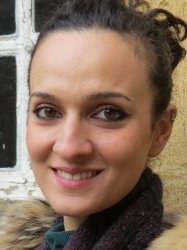Studying at the University of Verona
Here you can find information on the organisational aspects of the Programme, lecture timetables, learning activities and useful contact details for your time at the University, from enrolment to graduation.
Academic calendar
The academic calendar shows the deadlines and scheduled events that are relevant to students, teaching and technical-administrative staff of the University. Public holidays and University closures are also indicated. The academic year normally begins on 1 October each year and ends on 30 September of the following year.
Course calendar
The Academic Calendar sets out the degree programme lecture and exam timetables, as well as the relevant university closure dates..
| Period | From | To |
|---|---|---|
| primo semestre (lauree magistrali) | Oct 5, 2020 | Dec 23, 2020 |
| secondo semestre (lauree magistrali) | Mar 1, 2021 | Jun 1, 2021 |
| Session | From | To |
|---|---|---|
| sessione invernale | Jan 11, 2021 | Feb 12, 2021 |
| sessione estiva | Jun 7, 2021 | Jul 23, 2021 |
| sessione autunnale | Aug 23, 2021 | Sep 17, 2021 |
| Session | From | To |
|---|---|---|
| sessione autunnale (validità a.a. 2019/20) | Dec 9, 2020 | Dec 11, 2020 |
| sessione invernale (validità a.a. 2019/20) | Apr 7, 2021 | Apr 9, 2021 |
| sessione estiva (validità a.a. 2020/21) | Sep 6, 2021 | Sep 8, 2021 |
| Period | From | To |
|---|---|---|
| Vacanze di Natale | Dec 24, 2020 | Jan 6, 2021 |
| Vacanze di Pasqua | Apr 3, 2021 | Apr 6, 2021 |
| Vacanze estive | Aug 9, 2021 | Aug 15, 2021 |
Exam calendar
Exam dates and rounds are managed by the relevant Economics Teaching and Student Services Unit.
To view all the exam sessions available, please use the Exam dashboard on ESSE3.
If you forgot your login details or have problems logging in, please contact the relevant IT HelpDesk, or check the login details recovery web page.
Should you have any doubts or questions, please check the Enrollment FAQs
Academic staff
 maurizio.malpede@univr.it
maurizio.malpede@univr.it
 martina.menon@univr.it
martina.menon@univr.it

Vannucci Virginia
 virginia.vannucci@univr.it
virginia.vannucci@univr.it
Study Plan
The Study Plan includes all modules, teaching and learning activities that each student will need to undertake during their time at the University.
Please select your Study Plan based on your enrollment year.
1° Year
| Modules | Credits | TAF | SSD |
|---|
1 module between the following2° Year activated in the A.Y. 2021/2022
| Modules | Credits | TAF | SSD |
|---|
2 modules among the following2 modules among the following1 module between the following| Modules | Credits | TAF | SSD |
|---|
1 module between the following| Modules | Credits | TAF | SSD |
|---|
2 modules among the following2 modules among the following1 module between the following| Modules | Credits | TAF | SSD |
|---|
Legend | Type of training activity (TTA)
TAF (Type of Educational Activity) All courses and activities are classified into different types of educational activities, indicated by a letter.
Type D and Type F activities
| years | Modules | TAF | Teacher |
|---|---|---|---|
| 1° | Future matters | D |
Alessandro Bucciol
(Coordinator)
|
| 1° | Future matters | D |
Alessandro Bucciol
(Coordinator)
|
| years | Modules | TAF | Teacher |
|---|---|---|---|
| 1° | The fashion lab (1 ECTS) | D |
Maria Caterina Baruffi
(Coordinator)
|
| 1° | The fashion lab (2 ECTS) | D |
Maria Caterina Baruffi
(Coordinator)
|
| years | Modules | TAF | Teacher |
|---|---|---|---|
| 1° | Design and Evaluation of Economic and Social Policies | D |
Federico Perali
(Coordinator)
|
| 1° | Public debate and scientific writing - 2020/2021 | D |
Martina Menon
(Coordinator)
|
| 1° | Wake up Italia - 2020/2021 | D |
Sergio Noto
(Coordinator)
|
| years | Modules | TAF | Teacher | |
|---|---|---|---|---|
| 1° | Professional Communication for Economics | D |
Claudio Zoli
(Coordinator)
|
|
| 1° 2° | Business analytics: make your data make an impact - 2020/2021 | D |
Claudio Zoli
(Coordinator)
|
|
Macroeconomics and finance (2021/2022)
Teaching code
4S003740
Academic staff
Coordinator
Credits
9
Language
English
Scientific Disciplinary Sector (SSD)
SECS-P/01 - ECONOMICS
Period
primo semestre (lauree magistrali) dal Oct 4, 2021 al Dec 17, 2021.
Learning outcomes
The course will provide students with the knowledge of the basic concepts used in modern macroeconomics. By considering how the microeconomic units, namely consumers and firms, make their decisions and how their choices yield economy-wide outcomes, students will acquire a better knowledge and comprehension of why unemployment, production, prices and other important macro variables fluctuates over time, and more generally what governs the way good and financial markets work. By the end of the course students will be able to build a small theoretical model for the entire economy using the representative agent paradigm. This will allow them to analyse demand, supply and equilibrium in three macro markets: the aggregate goods and services market, the aggregate labour market, and the aggregate financial market. They will also be able to analyse the effects of macroeconomic policies on employment, output and prices, and to apply what they have learned to specific cases.
Program
Microfoundations: consumer analysis, firm analysis
Fiscal policy
Introduction to finance theory
Monetary policy
Optimal policy analysis: the flexible price case
Optimal policy analysis: the rigid price case
Long run growth analysis
Bibliography
Examination Methods
This course will be assessed with a written examination which will include open questions on the theory as well as exercises. This exam will test for: (a) the accurate and thorough understanding of the concepts, methods, and models in the course, (b) knowledge of the major empirical regularities for aggregate economic variables, and (c) ability to use these theoretical tools and this empirical knowledge to answer macroeconomic questions.
Career prospects
Module/Programme news
News for students
There you will find information, resources and services useful during your time at the University (Student’s exam record, your study plan on ESSE3, Distance Learning courses, university email account, office forms, administrative procedures, etc.). You can log into MyUnivr with your GIA login details: only in this way will you be able to receive notification of all the notices from your teachers and your secretariat via email and soon also via the Univr app.
Graduation
Doppio Titolo
Grazie ad una rete di accordi con Atenei esteri, l’Università di Verona offre percorsi formativi internazionali che consentono l’acquisizione di un doppio titolo di studio. L’ammissione ad un CdS a doppio titolo consente di conseguire contemporaneamente, nel tempo di un normale ciclo di studi (di cui una parte viene svolta all'estero), sia il titolo di studio dell’Università di Verona che il titolo rilasciato dall'Ateneo partner, garantendo di vedere riconosciuto il diploma di laurea in entrambi i Paesi.
L'accesso al doppio titolo (così come l’eventuale sostegno finanziario) è regolato da uno specifico bando, e il numero di posti è limitato.

 045 8028 508
045 8028 508




























